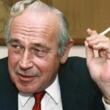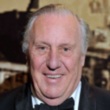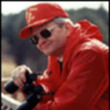Midnight Runner
Description
More Details
9781101204382
Also in this Series
Published Reviews
Publisher's Weekly Review
"Death is the Midnight Runner" goes the Arab proverb that gives Higgins's latest its name, but the title could as well refer to the book itself, swift and coursing with dark passion. A sequel to last year's electrifying Edge of Danger, this 33rd novel from the bestselling author finds the usual Higgins crew most notably, former IRA enforcer Sean Dillon and his present boss, Gen. Charles Ferguson, head of a super-secret British agency answering only to the prime minister responding to various revenge gambits by the beautiful and fabulously wealthy half-bedu, half-English Lady Kate Rashid, countess of Loch Dhu and head of the Rashid Bedu tribe of Hazar, whose three brothers were killed by Dillon and his comrades in the earlier book, after, among other acts of infamy, a Rashid assassination attempt on U.S. President Jack Cazalet. Kate first goes after U.S. Sen. Daniel Quinn, sent by Cazalet to England to investigate Kate and her operations, by seeking to discredit the senator's daughter in a drug scandal, but the young woman dies from the drugs given her without her knowledge. Quinn, seeking his own revenge, induces Dillon and company to confront Kate, no problem when they learn that her master plan involves blowing up a bridge in Hazar desert, thereby disrupting world oil flow and plunging the globe into economic crisis; and, of course, Kate wants to kill Dillon and his pals as well. The action rolls from grand London hotel dining rooms and Oval Office to the Hazar desert, and mostly it's as clipped and brutal, as credible and steel-hearted as Higgins's best; only the absurd final duel between Dillon and Kate, a showdown that feels more scripted than lived, keeps the novel from matching that best. (Mar. 4) (c) Copyright PWxyz, LLC. All rights reserved
Library Journal Review
In this sequel to Edge of Danger, Kate Rashid, the only surviving member of the powerful Rashid family, seeks revenge on Sean Dillon and the U.S. president, whom she holds responsible for the death of her three brothers. Rashid and her henchmen scheme to ruin the world's oil supply by blowing up a Rashid-owned pipeline, thus precipitating a disaster that will ruin the president's credibility. For Dillon, she plans violent death. Patrick Macnee is not at his best with this talky adventure, and the listener is frequently confused about which male character is speaking. He uses little variance in pitch, and his accents waver. The American men sound alike, and the drawl that characterizes them is an odd meeting of Alabama and Massachusetts. Wait for another recording; this one is not recommended.-Juleigh Muirhead Clark, John D. Rockefeller Jr. Lib., Colonial Williamsburg Fdn., VA (c) Copyright 2010. Library Journals LLC, a wholly owned subsidiary of Media Source, Inc. No redistribution permitted.
Kirkus Book Review
Superhero Dillon gets his villain, saving us all from heaven knows what. Beautiful billionaire terrorist Kate Rashid should have gone back to terrorist school for a refresher in Security 101. Scheming Kate just can't seem to keep those nefarious plans to herself. Eager to blow up a certain bridge in southern Arabia ("I want to create chaos"), she mouths off in an Irish pub that, as even a journeyman bomb-thrower will tell you, constitutes a security leak begging to become a flood. Within minutes her plan's details are known to Sean Dillon, counterterrorist extraordinaire, who takes the steps necessary to foil it. That is, he collects a couple of AK-47's, a couple of Brownings, a helper to watch his back, and a plane to jump out of when the time is right-all the assault team he needs to put a whole army of Kate's simpletons in body-bags. But why was wicked Kate so intent on blowing up that bridge? Well, oil pipes run alongside, you see, and if these were to be destroyed, the world's oil supplies would suffer a devastating blow. And why does that matter to Machiavellian Kate? She figures it would so besmirch US President Cazelet's reputation that his place in history would be permanently downgraded. She holds Cazelet, Dillon and friends responsible for the deaths of her three cherished brothers, cold-blooded killers all, and though her retribution-of-choice might seem roundabout to some, to Iago-like Kate it's an eye for an eye. At any rate, Dillon stymies her, setting the stage for the obligatory showdown: Dillon vs. Kate, mano a womano, and you will go a long way to match the absurdity with which this denouement plays out. At one end le Carre, at the other Higgins himself (Edge of Danger, 2001, etc.), who yields to no one in mindless plotting.
Publishers Weekly Reviews
"Death is the Midnight Runner" goes the Arab proverb that gives Higgins's latest its name, but the title could as well refer to the book itself, swift and coursing with dark passion. A sequel to last year's electrifying Edge of Danger, this 33rd novel from the bestselling author finds the usual Higgins crew most notably, former IRA enforcer Sean Dillon and his present boss, Gen. Charles Ferguson, head of a super-secret British agency answering only to the prime minister responding to various revenge gambits by the beautiful and fabulously wealthy half-bedu, half-English Lady Kate Rashid, countess of Loch Dhu and head of the Rashid Bedu tribe of Hazar, whose three brothers were killed by Dillon and his comrades in the earlier book, after, among other acts of infamy, a Rashid assassination attempt on U.S. President Jack Cazalet. Kate first goes after U.S. Sen. Daniel Quinn, sent by Cazalet to England to investigate Kate and her operations, by seeking to discredit the senator's daughter in a drug scandal, but the young woman dies from the drugs given her without her knowledge. Quinn, seeking his own revenge, induces Dillon and company to confront Kate, no problem when they learn that her master plan involves blowing up a bridge in Hazar desert, thereby disrupting world oil flow and plunging the globe into economic crisis; and, of course, Kate wants to kill Dillon and his pals as well. The action rolls from grand London hotel dining rooms and Oval Office to the Hazar desert, and mostly it's as clipped and brutal, as credible and steel-hearted as Higgins's best; only the absurd final duel between Dillon and Kate, a showdown that feels more scripted than lived, keeps the novel from matching that best. (Mar. 4) Copyright 2001 Cahners Business Information.























































